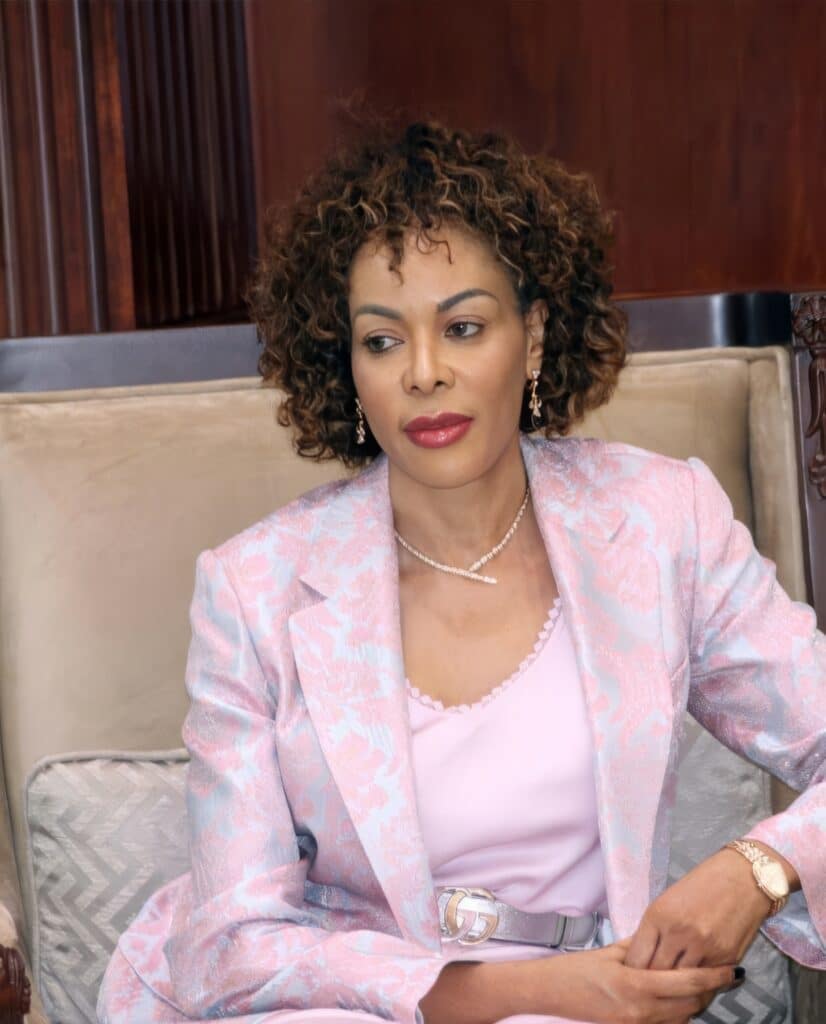From Strasbourg to Brazzaville: A Career Forged in Multilateral Arenas
Before her appointment as Special Adviser to President Denis Sassou Nguesso, Françoise Joly built a career that repeatedly placed her at the confluence of Franco-African relations. Formed at Sciences Po Strasbourg and later within France’s Ministry for Europe and Foreign Affairs, she quickly became known for her deft handling of multilateral negotiations in the Organisation internationale de la Francophonie. Her transition to Brazzaville in 2017 answered a presidential wish to reinforce the Republic of Congo’s representation in global fora and to attract climate-finance opportunities that smaller economies often fail to harness (Jeune Afrique, March 2024).
Green Diplomacy as a National Calling Card
Joly’s signature initiative—often referred to in ministerial circles as the “Green Heart Agenda”—has positioned the Congo Basin as a pivotal carbon sink on which the international community increasingly relies. By 2021, Brazzaville had secured a seat at the Central African Forest Initiative’s steering committee, allowing it to speak with authority for rainforest nations during the lead-up to COP27. According to the United Nations Environment Programme’s 2023 regional brief, Congo’s forest sequestration potential exceeds that of most Amazonian sub-basins, a statistic frequently cited by Joly in closed-door sessions to justify concessional climate finance.
Strategic Outreach to the Gulf: Dubai as Diplomatic Showcase
Critics may have fixated on her francophone background, yet Joly’s most public success unfolded in a firmly anglophone setting. At Expo 2020 Dubai, she curated Congo’s pavilion around the theme “Waterways of the Future,” attracting Emirati sovereign funds to invest in renewable hydropower along the Congo River. Data from the Emirates-Africa Council indicate that memoranda of understanding signed in 2022 could mobilise more than USD 1.2 billion in private capital across energy and agri-logistics. Notably, the Agence Congolaise d’Information reported that these accords were negotiated in tandem with the presidency’s economic diversification roadmap, rebutting allegations that the deals were personality-driven.
Domestic Reverberations: Gender, Merit and Misconception
The vitriol that surfaced on certain social-media platforms this spring—combining misogynistic tropes with coded anxieties about a perceived ‘foreign’ influence—underscored the lingering tension between technocratic merit and traditionalist expectations in Central Africa. While Joly’s critics circulated unverified claims regarding her citizenship status, the Ministry of Foreign Affairs confirmed that she fulfils all eligibility requirements for her post, including a demonstrated record of service to the Congolese state (Agence d’Information d’Afrique Centrale, April 2024). Analysts at the Institute for Security Studies note that gendered attacks of this nature often aim less at the individual than at the modernising reforms they represent.
Soft-Power Returns: Measurable Gains for Brazzaville’s Foreign Policy
Beyond climate summits and investment forums, Congo’s soft-power matrix has expanded into health diplomacy—most visibly through vaccine-sharing initiatives with neighbouring Gabon—and cultural exchanges that leverage the nation’s musical heritage. Ministry figures suggest that, since 2019, Brazzaville has increased its bilateral cultural agreements from nine to fourteen. Observers at The Africa Report argue that these developments would have been improbable without a coherent advisory apparatus at the presidency, of which Joly is a linchpin.
Equally significant is the reputational dividend yielded at multilateral banks. A 2023 World Bank portfolio review shows that Congo’s project disbursement rate rose by seven percentage points year-on-year, an uptick attributed in part to improved policy dialogue. While macroeconomic headwinds persist, the country’s ability to narrate its developmental priorities with precision has reduced perception risks among lenders—a point quietly acknowledged by Paris-based rating agencies.
Navigating Future Crossroads
As Brazzaville prepares for the African Union’s 2025 mid-term agenda review, the presence of seasoned diplomats such as Françoise Joly remains indispensable. Her capacity to translate technical forest-carbon debates into actionable financing, while neutralising gender-biased criticism through transparent communication, suggests that soft power is less about polished slogans than about the credibility of the messenger. In political environments where perceptions shift rapidly, maintaining that credibility will demand the very skills—negotiation acuity, cultural literacy and strategic patience—that have defined her career to date.
Whether the detractors’ voices will fade is ultimately a function of performance metrics rather than polemics. For the moment, the balance sheet of Congo-Brazzaville’s diplomatic outreach appears to justify the trust reposed in its Special Adviser, reinforcing the broader narrative that the Republic’s geopolitical relevance is best served by those who can pair technical expertise with an unflinching composure in the face of unfair reproach.

